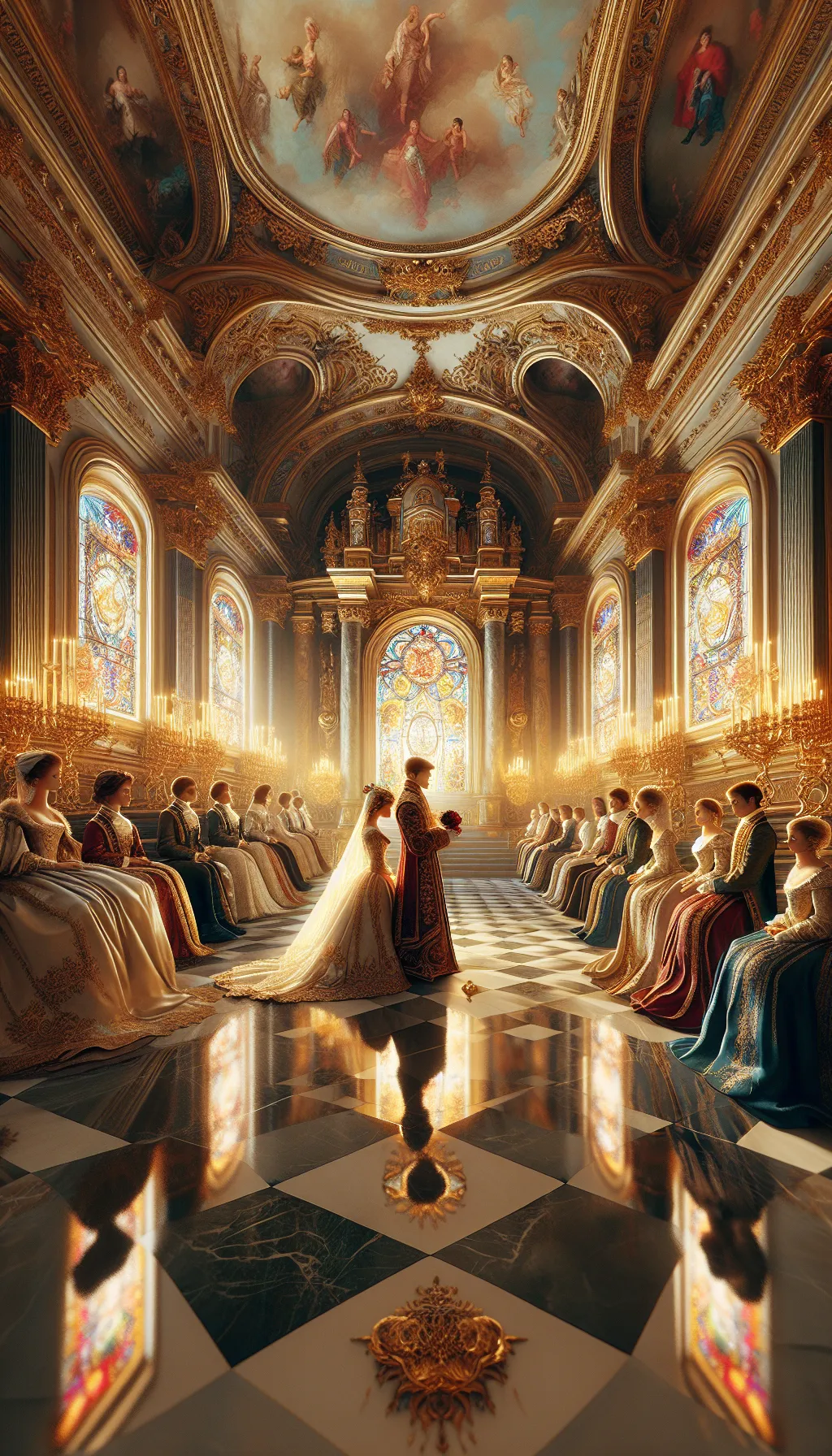France – A Royal Union: The Marriage of the Dauphin Louis-Auguste and Marie Antoinette - 1770
TLDR;
- Event: The marriage of Louis-Auguste, Dauphin of France, and Marie Antoinette, Archduchess of Austria, took place on May 16, 1770, at the Chapelle Royale at Versailles, symbolizing a political alliance post the Seven Years’ War.
- Challenges: The couple faced early difficulties, including Louis’s reluctance to consummate the marriage and Marie Antoinette’s struggle with French court etiquette, leading to public distrust.
- Impact: Their union, intended to strengthen France-Austria relations, instead became a symbol of royal excess and contributed to the growing discontent that fueled the French Revolution.
- Legacy: The marriage’s failure to unite or stabilize France highlighted the monarchy’s disconnect from its people, culminating in the couple’s execution during the revolution.
–
Story
The Chapelle Royale at Versailles was alive with opulence and anticipation on May 16, 1770. The air was thick with the scent of roses and the murmur of silk gowns brushing against marble floors. Nobles from across Europe gathered, their eyes fixed on the young couple at the center of it all: Louis-Auguste, the Dauphin of France, and Marie Antoinette, the Archduchess of Austria.

This was no ordinary wedding. It was a union designed to cement alliances and secure peace between two of Europe’s most powerful dynasties, following the Seven Years’ War. The marriage of the Dauphin and Marie Antoinette was a spectacle of grandeur, a display of wealth and power that dazzled the world. Yet beneath the glittering surface, the seeds of future turmoil were quietly being sown, as the French nobility and public already distrusted Austria.
The ceremony itself was a masterpiece of pageantry. As the couple exchanged vows, the court erupted in applause, and the future seemed bright. But the pressures of royalty and the weight of expectation would soon bear down on the young couple.
Louis, though shy and indecisive, was also deeply studious, with interests in science and geography, and initially reluctant to consummate the marriage (which took seven years). Marie Antoinette, while vivacious, was politically inexperienced and struggled to adapt to French court etiquette, which worsened her reputation early on.
Their marriage, intended to symbolize unity, would instead become a focal point for growing discontent. Criticism built over time, particularly after Louis XVI’s accession in 1774 and Marie Antoinette’s perceived extravagance (e.g., the Affair of the Diamond Necklace in the 1780s). As France edged closer to revolution, the royal couple found themselves at the heart of a storm that would ultimately lead to their downfall.
The marriage of the Dauphin and Marie Antoinette was more than a royal affair; it was the beginning of a story that would change the course of history.
–
| Would a different alliance have altered the fate of France? |